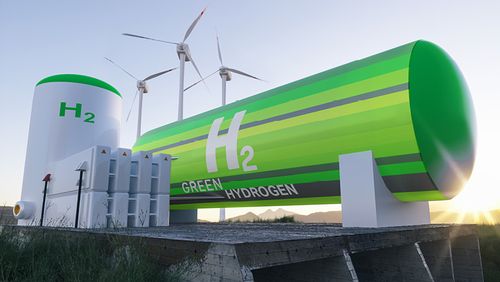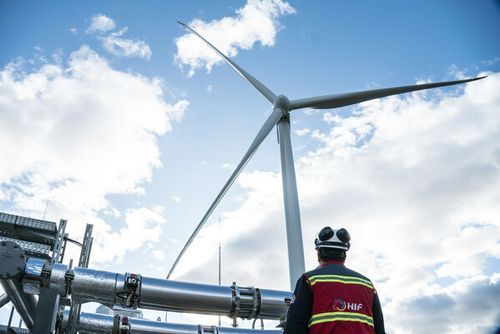HIF Global, an eFuels company, today announced agreements with Johnson Matthey and Honeywell to conduct preliminary engineering for HIF’s first sustainable aviation fuel (SAF) facility in the United States.
The facility would produce approximately 11,000 barrels per day of eSAF, decarbonizing over 12 billion air passenger miles per year.
eSAF is sustainable aviation fuel made by combining recycled carbon dioxide (CO2) with hydrogen produced using renewable electricity. eSAF can be dropped-in to existing jet engines without any modifications required.
Meg Gentle, executive director of HIF Global, said, “eFuels are a replacement for fossil fuels and are a necessary solution for decarbonizing global transportation. At HIF Global, we have already demonstrated the capability to produce eMethanol for marine transport and eGasoline for road transport with the 2022 start-up of the HIF Haru Oni Demonstration Facility in southern Patagonia, Chile, where the wind is blowing all the time. Together with Johnson Matthey and Honeywell, we intend to deliver an eFuel solution for airplanes before 2030.”
Renato Pereira, CEO of HIF USA, added, “Air travel is the most challenging sector of the global transportation infrastructure to decarbonize, with limited low carbon alternatives to serve growing demand for jet fuel. The simplicity of eFuels is that they are produced from air and water for use in existing engines. eSAF produced using Honeywell’s technology can reduce CO2 emissions compared to conventional jet fuel by 88%.2 When blended with conventional jet fuel, eSAF can be dropped-in immediately to existing jet engines with no modifications required.”
Johnson Matthey’s technology will use green hydrogen and recycled CO2 to produce eMethanol which can be used in the shipping and chemical industries or upgraded into other eFuels including eSAF. Johnson Matthey’s technology is producing eMethanol today at the HIF Haru Oni Demonstration Plant in Chile.
The Honeywell UOP eFining™ technology processes eMethanol into a light olefin stream utilizing Honeywell’s methanol to olefins process, which is then oligomerized, hydrogenated and finally fractionated to produce eSAF. The technology offers a highly integrated design that can process flexible feedstocks using commercially proven processes, resulting in operational reliability, minimized capital expenditures, and low energy intensity.
Alberto Giovanzana, chief commercial officer of Catalyst Technologies at Johnson Matthey, said: “We are very excited to be collaborating again with HIF, offering JM’s CO2-to-methanol technology in this leading eFuels project. JM’s sustained innovation on methanol process and catalyst technology is allowing us to move at scale and pace in one of the routes to eSAF that enables the transition to net zero.”
“As the leader in renewable fuel technology, Honeywell is well aware that creating technologies that can use additional feedstocks is vital to long-term decarbonization of the aviation sector,” said Lucian Boldea, president and CEO of Honeywell Performance Materials and Technologies. “The ability to partner with an industry leader like HIF Global to use readily abundant CO2 to produce eSAF is a transformational opportunity for this market.”







